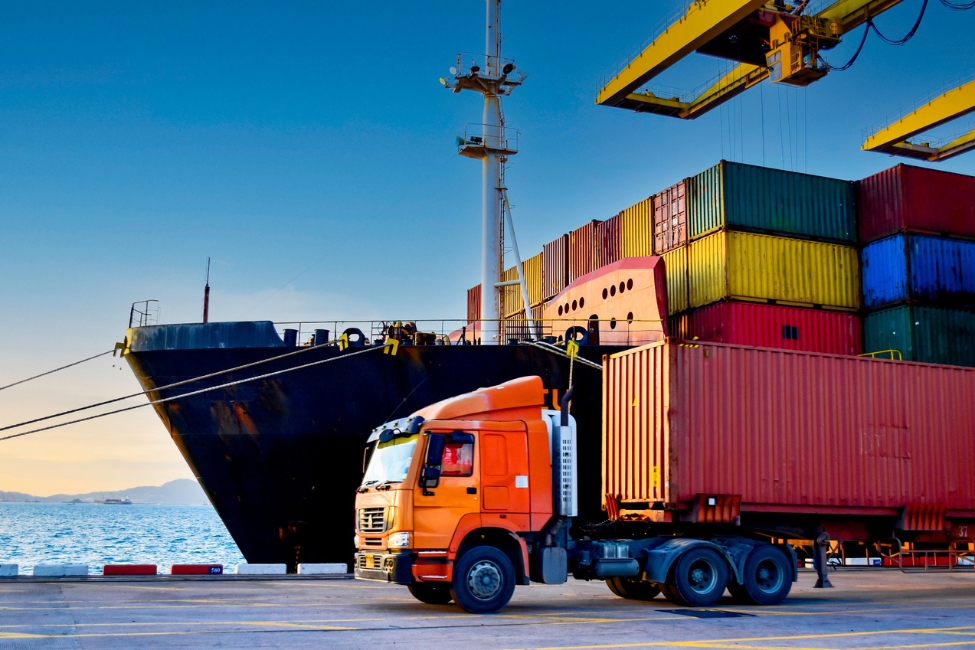FAU Report: Supply Chain Expands to Highest Reading as Tariffs Loom

The logistics industry saw record expansion compared to the past two years, but uncertainties around tariffs and potential economic conditions pose challenges for the supply chain in the coming months, according to researchers at Florida Atlantic University and four other schools.
The logistics industry saw record expansion compared to the past two years, but uncertainties around tariffs and potential economic conditions pose challenges for the supply chain in the coming months, according to researchers at Florida Atlantic University and four other schools.
The January Logistics Manager’s Index (LMI) reads in at 62.0, up (+4.7) from the December 2024 reading. A score above 50 indicates that the logistics industry is expanding, while a score below 50 indicates that the industry is shrinking. This is the fastest reading of expansion in the overall index since June 2022. Five out the eight metrics used to calculate the score saw an increase.
“The incoming U.S. presidential administration has been vocal around what changes they expect to and subsequently have made to the U.S. global trade relationship, and as a result supply chains are required to adopt a nimble and agile footing,” said Steven Carnovale, Ph.D., an associate professor of supply chain management in FAU’s information technology and operations management department.
The LMI, a survey of director-level and above supply chain executives, measures the expansion or contraction of the logistics industry using eight unique components: inventory levels, inventory costs, warehousing capacity, warehousing utilization, warehousing prices, transportation capacity, transportation utilization, and transportation prices. Along with FAU, researchers at Arizona State University, Colorado State University, Rutgers University, and the University of Nevada at Reno calculated the LMI using a diffusion index.
Steady economic growth in the United States over the past six months helped bolster January’s score; increased inventory levels also helped as firm built up their inventory levels to head off any potential added costs due to potential tariffs. Warehousing capacity, on the other hand, dropped to 51.7, signaling that it is near contraction. The drop in capacity led to increased warehousing prices at 73.1, the highest levels since February 2023.
“The decrease in capacity, and subsequent cost increase, is likely the result of two forces intersecting. First, firms knowing that tariffs were looming likely stockpiled goods that were likely to be exposed to the tariffs prior to their announcement/finalization, and second the aftereffects of the holiday season push/return cycle,” Carnovale said. “As the months move forward, watching the split between where and how the capacity/pricing dynamics are shifting between upstream and downstream may serve as a harbinger of things to come."
-FAU-
Latest News Desk
- Pandemic's Emotional Toll on Moms Lingers - Can Self-Compassion Help?Using photography and reflection, FAU College of Education researchers explored how mothers of young children understood and practiced self-compassion after the pandemic.
- The Role of the Courts in Interpreting the ConstitutionFlorida Atlantic University's Dorothy F. Schmidt College of Arts and Letters presents the 2025 Constitution Day lecture "The Role of the Courts in Interpreting the Constitution."
- FAU Lands U.S. EPA Grant to Monitor Water Quality in Lake OkeechobeeWith a $700,000 grant, researchers will study how sunlight alters pollutants like pesticides into toxic byproducts using innovative sampling and chemical analysis techniques.
- FAU Engineers and Sensing Institute Map the Brain's Blood FlowResearchers built a detailed computer model of mouse brain vasculature, offering new insights into brain protection and potential breakthroughs in diagnosing stroke, Alzheimer's and traumatic brain injuries.
- FAU Provost Russell Ivy, Ph.D., Earns National APLU AwardFAU's Interim Provost and Vice President for Academic Affairs, Russell Ivy, Ph.D., is the winner of the 2025 Michael P. Malone International Leadership Award.
- Study Urges Reform in Mental Health Screening for Incarcerated YouthNew research from FAU's College of Education finds troubling gaps in the accuracy and fairness of mental health screenings used with incarcerated youth who have been adjudicated delinquent in the U.S.






